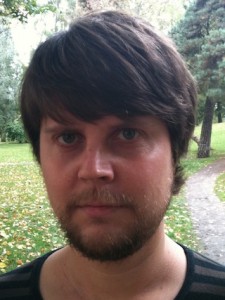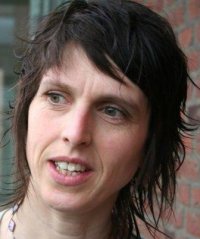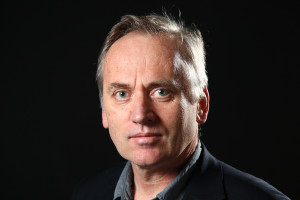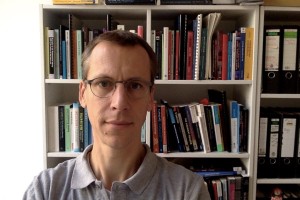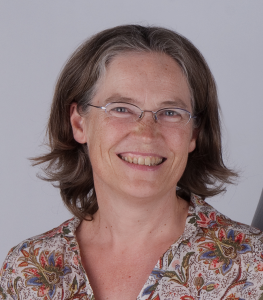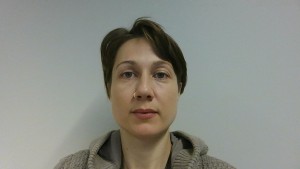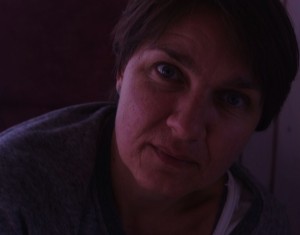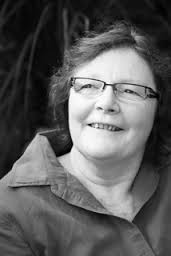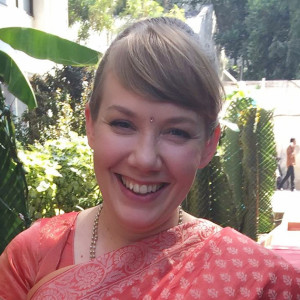Science & Technology Studies is an international peer-reviewed journal dedicated to the advancement of scholarly studies of science and technology as socio-material phenomena, including their historical and contemporary production and their associated forms of knowledge, expertise, social organization and controversy. This includes interest in developing Science and Technology Studies’ own knowledge production techniques, methodology and interventions. The journal welcomes all high quality contributions that are based on substantial theoretical or empirical engagement within the multidisciplinary field of science and technology studies, including contributions from anthropology, sociology, history, philosophy, political science, educational science and communication studies. Science & Technology Studies is published four times a year from the beginning of 2016. And the most recent special issues have concerned politics of innovation and energy systems and infrastructures in society, and upcoming special issues include: university society relations; global health; numbers and numbering; and knowledge infrastructures.
Science & Technology Studies is the official journal of the European Association for the Study of Science and Technology (EASST) and the Finnish Association for Science and Technology Studies (FSTS). The journal is open access and available electronically around the world, after a four month embargo on its latest issue, which is available only to subscribers and members of its host organizations.
History
In 2012, Science & Technology Studies was launched as an e-journal (http://www.sciencetechnologystudies.org). It was built on the long running journal Science Studies which was first published in 1988 by the Finnish Society for Science Studies (later re-named as The Finnish Society for Science and Technology Studies). Originally the journal sought to promote a Scandinavian perspective in science and technology studies, but in 1994 it re-oriented itself to become more global. Since 2013, Science & Technology Studies has been the house journal of the European Association for the Study of Science and Technology (EASST).
Science & Technology Studies is published with the help of a grant from the Academy of Finland, subscription fees, and a fee from EASST to off er the journal as its membership benefit journal also to EASST members. The international scope of the journal was reflected in the changes that were made to its editorial board in 2012, which sought to refl ect the global nature of STS. The journal has been headed by five chief editors: Veronica Stolte-Heiskanen (1988- 1989), Marja Häyrinen-Alestalo (1990- 2004), Henrik Bruun (2005-2006), Tarja Knuuttila and Sampsa Hyysalo (2007-2009). The post was then re-designated as that of coordinating editor, and has been then held by Sampsa Hyysalo (2010-2016). Salla Sariola will take over in January 2016. Since its launch over 20 years ago, the journal has expanded its scope to become an important international journal addressing a broad range of interdisciplinary issues in science and technology studies. Today the journal is available in over 700 institutions in more than 80 countries around the world. EASST, FSTS and the journal are non-profit organizations. The journal is currently undergoing a trial period for inclusion in the Social Science Citation Index for an ‘impact factor’.
Editor
Dr Antti Silvast is Research Fellow in European Energy Policy and Markets at the University of Edinburgh. Previously, he was postdoctoral researcher in Princeton Universit y’s Princeton Institute for International and Regional Studies. His PhD in Sociology is from the University of Helsinki. He has been an editor of Science & Technology Studies since 2014 and a member of the EASST since 2008. He is less known as an amateur programmer and his facility of the assembly syntax of various obsolete microprocessors.
Estrid Sørensen
Estrid Sørensen is a Professor of cultural psychology and anthropological knowledge at the Ruhr- University in Bochum, Germany. She did her PhD in Copenhagen on the enactment of materiality and knowledge in educational practices and is currently digging into studies of large-scale international educational assessments and their displacement into non-European cultures. Estrid is also engaged in doing social studies of social psychology along with comparative work on how computer games in diff erent cultural practices come to be enacted as harmful. Estrid did her PhD in psychology and has taught in departments of sociology and social anthropology. She feels most at home in the social anthropology provinces of STS. Estrid has been a member of the EASST Council since 2008. Estrid less known for her home made red current jam and plum butter (though she should be!).
Franc Mali
Franc Mali is professor of sociology and epistemology of science at Faculty of Social Sciences, University of Ljubljana. He is currently focusing mostly in three research areas: social networks in science, R&D evaluation, social and ethical regulation of new emerging technologies. From 1999 – 2008 he was the board member of The Sociology of Science and Technology Research Network at the European Sociological Association. In seldom free times from academic obligations he likes mountain tours.
Jörg Niewöhner
Jörg Niewöhner is professor of urban anthropology at the Institute of European Ethnology, Humboldt-Universität zu Berlin, and deputy director of the Integrative Research Institute THESys (www.iri-thesys.org). He holds a PhD in environmental sciences from the University of East Anglia (UK). His ethnographic research develops the intersections of social anthropology with the life and environmental sciences with a particular focus on the role of markets and infrastructures in transforming social-ecological systems.
Martina Merz
Martina Merz is a Professor of Science Studies at Alpen-Adria-University Klagenfurt, Wien, Graz, Austria (since 2014) and visiting scholar at TINT Centre of Excellence in mthe Philosophy of the Social Sciences, University of Helsinki, Finland. Her recent research focuses on the local configuration of new research fields, on the scientifi c practice of modeling, simulation, and imaging, and on comparison as an epistemic strategy. She explores interdisciplinary science not only as a study object but also in action, cooperating time and again with social scientists, philosophers, historians, and, occasionally, physicists. In her leisure time she enjoys the challenge of learning languages, even those impossible to master.
Salla Sariola
Having worked for 15 years in the UK in departments of anthropology, sociology and bioethics, salla is now a Senior Lecturer at University of Turku, Finland. Salla is also a Senior Research at Ethox Centre, University of Oxford. She has two intertwining research interest on social studies of science, biomedicine and bioethics, and feminist technoscience, gender and sexuality. Most recently she has conducted research on clinical trials in India, Sri Lanka and Kenya and LGBTIQ+ and women’s rights activism around medical research. When in need of a break from academia, she heads to her allotment which she is growing according to permaculture principles.
Sampsa Hyysalo
Sampsa Hyysalo is associate professor in co-design in Aalto University Helsinki, Finland. He has researched for close to twenty years how new technologies are developed and used, typically studying longitudinally the biography of a technology and related work/everyday practices. His fi rst degree is in cultural history; PhD in cultural psychology, work research and S&TS; docenture in informatics and he has worked also in innovation management and design. With this consistent background his work has topically focused most on new health care technologies, IT systems, media and renewable energy technologies. Less known is that at birth Sampsa probably had a near miss reincarnation as an otter, judging from the constant craving he has for going sailing, kayaking, swimming or surfing.
Torben Elgaard Jensen
Professor in Techno-anthropology and STS at Aalborg University Copenhagen. His research has engaged with many – probably too many areas of STS – but he is currently focusing two areas: The study of users and innovation, and the use of digital methods in STS. He has been the chairman of the Danish Association of STS for 9 years.
Brit Ross Withereik and Helen Verran; Book review editors
Brit Winthereik and Helen Verran are joint book review editors for Science & Technology Studies. Brit is Associate Professor in the Technologies in Practice Group at IT University of Copenhagen, Helen is Professor II at the Norwegian University of the Arctic at Tromsø and Professorial Fellow at Charles Darwin University in Northern Australia. Being book review editors brings joy when young scholars approach us asking to review books and when books and people are successfully paired. Helen is less known for growing organic bumper garlic crop on a hillside garden. Brit is less known for being lead singer in a woman’s band that keeps striving for rhythm and punctuality.
Louna Hakkarainen; Assistant Editor
Louna is a doctoral student in Aalto ARTS in the department of design. In her research she wants to find out how to create better technologies and services by involving users in the development process. Louna’s research focuses on learning between users and developers in collaborative design projects in elderly care and library fi elds. Her background is in social sciences, and she holds a licentiate degree from the University of Helsinki. In her spare time, Louna studies music theory to accomplish her lifelong dream of singing in a choir.
Scope and publications
Science & Technology Studies publishes editorials, research papers, discussion papers and book reviews. Research papers should be no longer than 10,000 words, excluding references.
Research papers
Research papers should present results that are novel and relevant for the community of researchers who study social dimensions of science and technology. Research papers can be empirical, theoretical, methods-oriented, or a mixture of these three categories. Research papers need to be scientifically sound and follow the rules of scientific publication.
Generally this means that…
• the reported research uses methods and empirical material in a way that is accepted by the scientific community
• the argumentation is clear and consistent
• the sources are adequately cited
• the text has not been published before in a refereed publication
• authorship is adequately represented
• the authors have followed relevant legislation and ethical norms in their work
Discussion papers
Discussion papers should raise issues that are somehow new for the community of researchers studying social dimensions of science and technology. Th ey could bring up a new topic, revive an old or neglected topic, argue for a new standpoint, or comment upon recent research in the fi eld. Discussion papers are thus not meant to support one or the other well-known standpoint in a debate, or to discuss a topic that has already been much discussed. Neither should they be reports from conferences or similar events. Discussion papers should follow academic convention when it comes to manner of argumentation and citation, and they should be no longer than 4,000 words, including references.
Book reviews
Science & Technology Studies welcomes reviews that summarize, critically assess, and provide context of topical and important books (or other scientific materials, e.g. CD-ROMs, thematic issues of a journal) in the fi eld of science and technology studies. It should provide an overview of the contents of the book, and an evaluation of its potential contribution to relevant fields of research. A review should not be a chapter-by-chapter description of the book, but rather a presentation of its main themes and arguments and a stimulation of debate on its key issues. Both the strengths and weaknesses of the book should be addressed. Relevant questions to be addressed in the review include: What is the book about? Who should read it? What are the main arguments or conclusions of the author(s)? Why are these new/ surprising/trivial/problematic? How does the work relate to existing discourse within STS?
Editorials
Editorials are written by members of the editorial board or, in the case of special issues, also guest editors. Instructions about the format and contents of an editorial can be received from the assistant editors.
